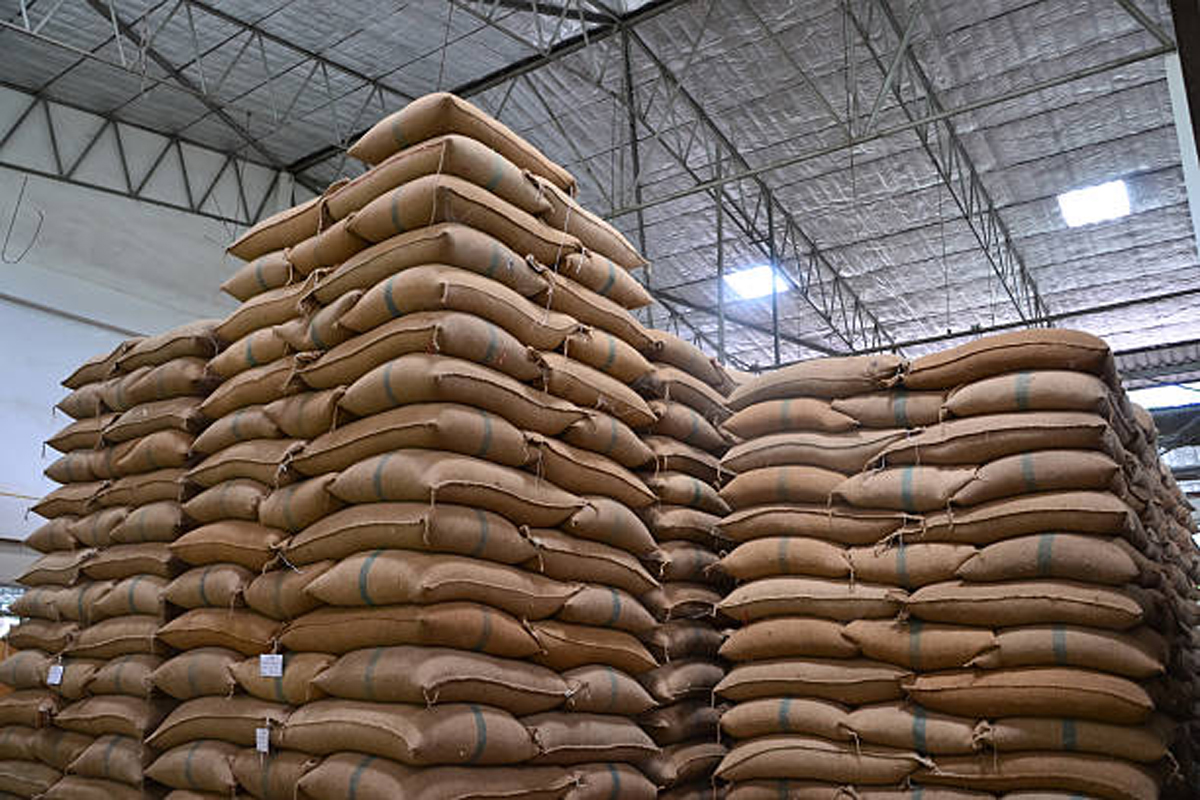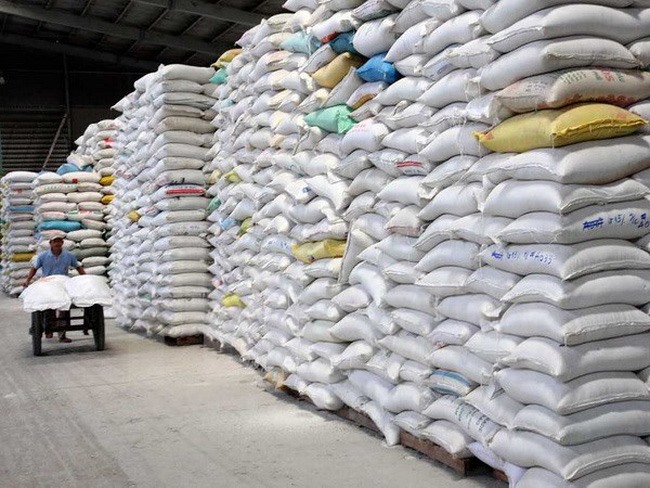Govt in talks with BSF as rice, sugar smuggling rises after export ban

Govt in talks with BSF as rice, sugar smuggling rises after export ban
Following India’s decision to refuse the export of one million tonnes of sugar to Bangladesh through the government-to-government (G2G) route, there has been an increase in sugar smuggling to Bangladesh.
The Indian government declined the export request, citing limited availability of sugar in the country as the reason for not granting permission. This decision has led to a rise in illegal trade activities, with smugglers attempting to meet the demand for sugar in Bangladesh.
The smuggling of sugar to Bangladesh has become a concern for the authorities as it not only leads to revenue loss for the Indian government but also creates an informal and unregulated trade channel that can have implications for the formal economy and market dynamics.
The situation highlights the complexities and challenges in managing trade between neighbouring countries. India’s decision to restrict the sugar export under the G2G route may have been driven by its domestic considerations and the need to manage its sugar stocks amidst limited availability. However, the outcome has resulted in unintended consequences, such as an increase in smuggling activities to meet the demand in the neighbouring country.
Efforts to curb smuggling and ensure fair trade practices between India and Bangladesh will likely remain a priority for both governments. Addressing the issue may require closer collaboration and better coordination in managing trade flows and balancing between meeting domestic needs and fulfilling international commitments.
there has been a surge in the smuggling of broken rice to neighbouring countries following India’s decision to restrict its exports in September last year. The Indian government implemented the export restrictions to bolster domestic supplies and stabilize prices in the domestic market.
The restriction on broken rice exports created a demand-supply gap in neighbouring countries, leading to an increase in smuggling activities to meet the demand. Smugglers take advantage of the price differentials between countries and attempt to profit from the higher prices of broken rice in the neighbouring markets.
The rise in broken rice smuggling is a challenge for both India and its neighbouring countries.

It not only leads to revenue loss for the Indian government but also disrupts the formal trade channels and market dynamics in the region. Additionally, such illegal activities can adversely affect the formal rice industry and the livelihoods of legitimate traders and farmers.
Addressing the issue of broken rice smuggling would require comprehensive efforts and cooperation between India and its neighbouring countries. Strengthening border controls and monitoring mechanisms can help curb illegal trade. Additionally, measures to increase domestic rice production and ensure adequate supplies in the Indian market may help reduce the incentive for smuggling.
The department of food and public distribution (DFPD) decided to move sugar exports to the ‘restricted’ category from the ‘free’ category in October last year to ensure adequate domestic supply of sugar. This measure is set to be in effect until 30 October of this year.
The Indian government’s concern over sugar and broken rice smuggling to neighbouring countries has raised the alarm about the potential depletion of domestic stocks and the potential impact on domestic prices. To address this issue, the Ministry of Food and Public Distribution has taken proactive steps by engaging in talks with various agencies.
The ministry is in discussions with the Border Security Force (BSF), which guards the 4,096 km-long international border with Bangladesh, as well as other security agencies and customs officials. The aim is to collaborate and develop measures and strategies to effectively curb these illegal exports and prevent further smuggling activities.
Cooperation between different government departments and security agencies is crucial to tackling smuggling at the border and enforcing regulations effectively.
They can strengthen border controls, enhance surveillance, and implement measures to prevent illicit trade in sugar and broken rice by working together.
The Indian government’s focus on addressing the issue through collaboration and proactive measures demonstrates its commitment to safeguarding domestic supply and maintaining stable prices for essential commodities. Effective enforcement and surveillance will play a critical role in curbing smuggling activities and ensuring the availability of these commodities in the domestic market.
As of the time of press, the queries sent to various Indian ministries and authorities, including the ministries of food and public distribution, home affairs, consumer affairs, agriculture and farmers welfare, commerce, external affairs, agricultural and processed food products export development authority, Food Corp. of India, and the Bangladesh government, have not received responses.
The issue of rising sugar prices since March is a significant concern, and it may be one of the reasons why the Indian government has taken measures to restrict sugar exports and address potential smuggling. The lack of responses from the concerned authorities may indicate that they are currently evaluating the situation or formulating appropriate responses to the queries.
As the matter involves multiple ministries and cross-border implications with Bangladesh, it might require coordination and careful consideration before providing official statements or responses. It’s possible that the concerned authorities are reviewing the situation and conducting internal consultations before releasing any official communication.
Given the importance of this issue for both domestic and international trade, it is likely that the relevant authorities will respond to the queries at an appropriate time. In the meantime, the government’s actions to safeguard domestic sugar supplies and curb smuggling activities demonstrate the gravity of the situation and the need for effective measures to address the challenges posed by rising sugar prices and potential illicit trade.

According to a sugar industry expert who spoke on anonymity, while smuggling of sugar might be occurring, the estimated quantity going out of the country may not significantly impact domestic consumption. The expert suggests that at most, around 300,000-400,000 tonnes of sugar might be smuggled, which is not expected to cause a shortage in domestic supply.
The expert further states that India’s sugar inventory is in a comfortable position, and the country is projected to have sufficient sugar production during the 2022-23 season (October-September). The estimated sugar production for this season is expected to be at least 33 million tonnes, while domestic consumption is projected to be around 27.5 million tonnes.
Additionally, the expert points out that mills in Tamil Nadu and Karnataka have already commenced sugar crushing during the particular season (July-September), which is anticipated to yield an additional 300,000-400,000 tonnes of sugar. As a result, the expert contends that there should be no significant concern about a shortage of domestic sugar supply.
It is important to note that while the sugar industry expert provides reassurance about the domestic sugar inventory, addressing smuggling remains crucial from a regulatory perspective. Smuggling can lead to various issues, including revenue loss for the government and distortions in trade dynamics. Effective measures to curb smuggling are essential for maintaining transparency and integrity in trading crucial commodities like sugar. The sugar industry expert further provided insights into the current sugar situation in India.
According to the expert, the closing stock for the ongoing sugar season, ending in September, is expected to be at least 5.5 million tonnes (5.5 mt), sufficient to meet domestic demand for the first two months of the new season starting in October.
Unlike other commodities, the upward trend in sugar prices has not been as substantial. Ex-mill sugar prices have increased by around 6.5% since March. Presently, sugar prices in Uttar Pradesh (UP) are in the range of ₹3,600-3,700 per quintal, while in Maharashtra, they are quoted at ₹3,470-3,525 per quintal.
Regarding rice, wholesale broken rice prices have risen by 13.6% since June, in line with the increase in long-grain rice prices due to the uneven distribution of monsoon rains. The all-India average broken rice price is currently quoted at ₹2,500 per quintal in the wholesale market.
The expert’s assessment suggests that the current stock levels and moderate price increases for sugar indicate a relatively stable situation for the commodity. However, it is essential to remain vigilant about the impact of potential smuggling on trade dynamics and revenue, as well as on the interests of legitimate traders and farmers.

As the situation evolves, it will be necessary for the relevant authorities to continue monitoring the sugar and rice markets closely to ensure adequate domestic supply and manage any potential disruptions effectively. Measures to curb smuggling activities and maintain a fair and transparent trade environment will be instrumental in sustaining a stable market for essential commodities like sugar and rice.




